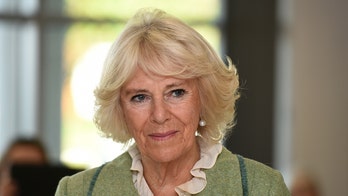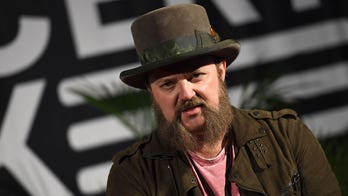
Feb. 28, 2014: Polish-French film director Roman Polanski holds his best director award during the 39th French Cesar Awards Ceremony in Paris. (AP)
WARSAW, Poland – An adviser to the Polish president accused U.S. authorities on Monday of "absolute ignorance" in seeking the arrest of film director Roman Polanski, a Holocaust survivor, while he was in Poland last week for the opening of a Jewish history museum.
The comments underline the dilemma of Poland in the face of continued attempts by the U.S. to seek Polanski's arrest on 1977 charges of having sex with a minor.
Poland is a close U.S. ally. But the Polish political class has shown a strong aversion to arresting and extraditing the Oscar-winning Polish-French filmmaker, who made his first films in Poland and is admired as a representative of Polish culture.
"I think that Polish citizens, especially in cases of crimes whose statute of limitations have run out, should not be subject to extradition," Prime Minister Ewa Kopacz said when asked about the Polanski case.
Polanski, 81, who lives in France, attended the opening of the POLIN Museum of the History of Polish Jews in Warsaw on Oct. 28 before traveling to Krakow, his childhood city. Polish authorities questioned him there because of the U.S. request, but refused to arrest him.
Tomasz Nalecz, adviser to President Bronislaw Komorowski, said he felt it was inappropriate to seek the arrest of a "child of the Holocaust" in Poland during the opening of the museum, which highlights Poland's role as a safe haven for Jews for centuries before the Holocaust.
"From the point of view of Polish history," the U.S. official who requested the arrest "showed absolute ignorance," Nalecz said.
The U.S. Embassy didn't immediately respond to a request for comment.
Polanski, who has Jewish origins, lost his mother at Auschwitz. He survived the war assuming a non-Jewish identity.
Polish media say Polanski has been seeking guarantees that Poland won't extradite him as he plans to direct a new film in Poland next year on the Dreyfus affair, the early 20th century French spy scandal.






